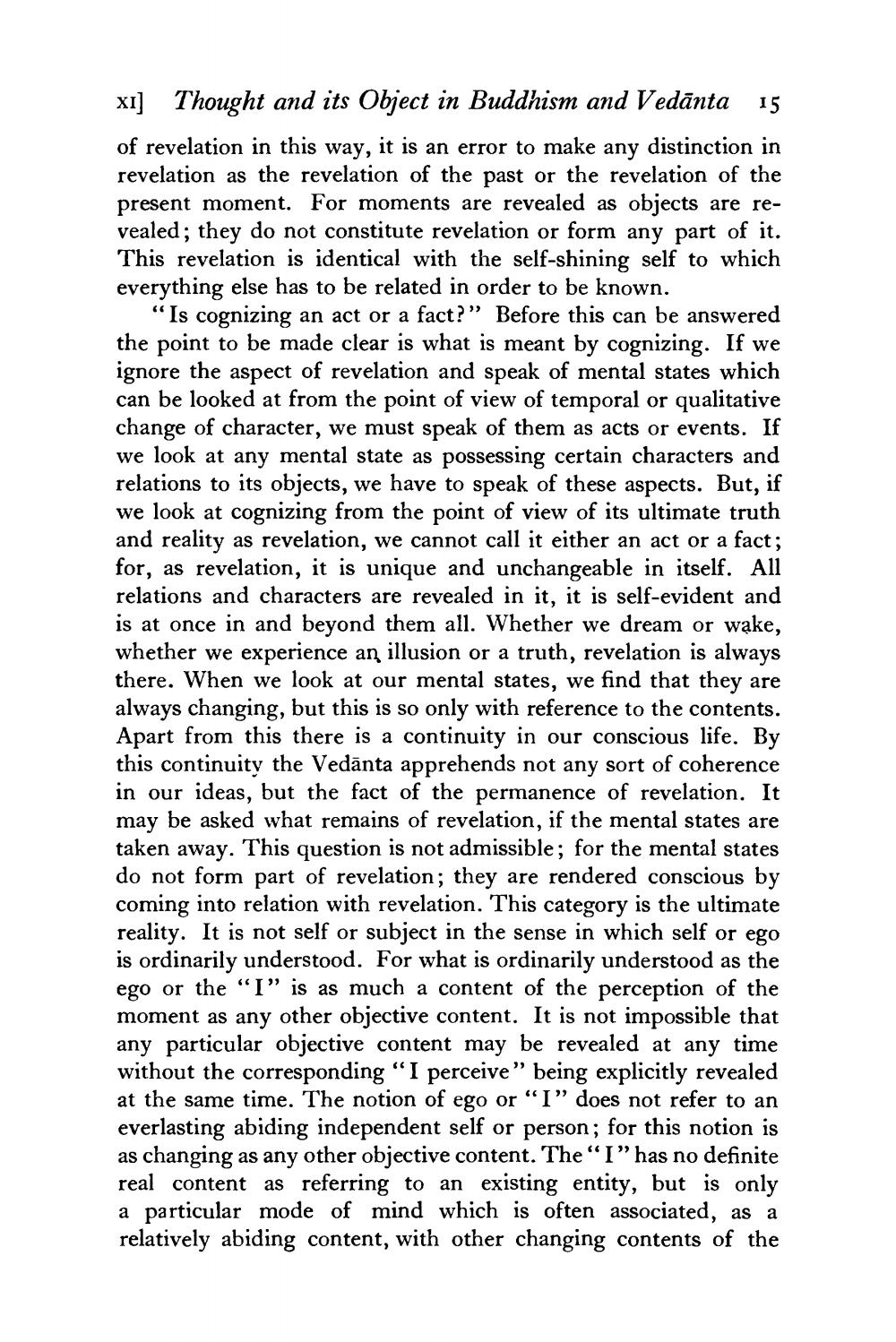________________
XI] Thought and its Object in Buddhism and Vedānta 15 of revelation in this way, it is an error to make any distinction in revelation as the revelation of the past or the revelation of the present moment. For moments are revealed as objects are revealed; they do not constitute revelation or form any part of it. This revelation is identical with the self-shining self to which everything else has to be related in order to be known.
“Is cognizing an act or a fact?” Before this can be answered the point to be made clear is what is meant by cognizing. If we ignore the aspect of revelation and speak of mental states which can be looked at from the point of view of temporal or qualitative change of character, we must speak of them as acts or events. If we look at any mental state as possessing certain characters and relations to its objects, we have to speak of these aspects. But, if we look at cognizing from the point of view of its ultimate truth and reality as revelation, we cannot call it either an act or a fact; for, as revelation, it is unique and unchangeable in itself. All relations and characters are revealed in it, it is self-evident and is at once in and beyond them all. Whether we dream or wake, whether we experience an illusion or a truth, revelation is always there. When we look at our mental states, we find that they are always changing, but this is so only with reference to the contents. Apart from this there is a continuity in our conscious life. By this continuity the Vedānta apprehends not any sort of coherence in our ideas, but the fact of the permanence of revelation. It may be asked what remains of revelation, if the mental states are taken away. This question is not admissible; for the mental states do not form part of revelation; they are rendered conscious by coming into relation with revelation. This category is the ultimate reality. It is not self or subject in the sense in which self or ego is ordinarily understood. For what is ordinarily understood as the ego or the “I” is as much a content of the perception of the moment as any other objective content. It is not impossible that any particular objective content may be revealed at any time without the corresponding "I perceive" being explicitly revealed at the same time. The notion of ego or “I” does not refer to an everlasting abiding independent self or person; for this notion is as changing as any other objective content. The “I” has no definite real content as referring to an existing entity, but is only a particular mode of mind which is often associated, as a relatively abiding content, with other changing contents of the




